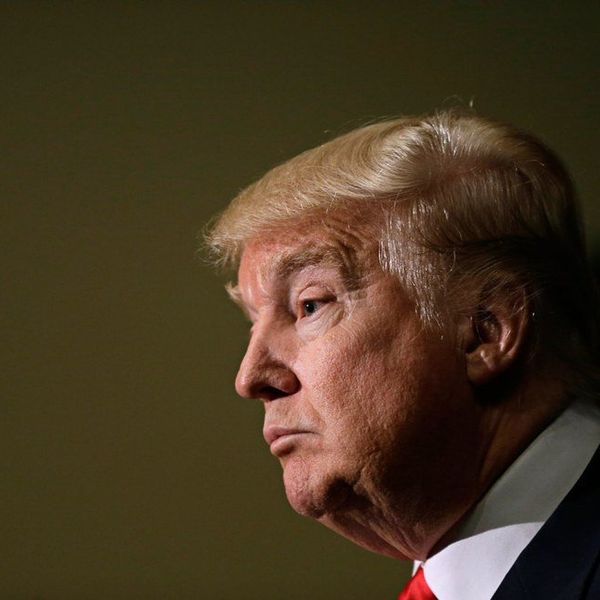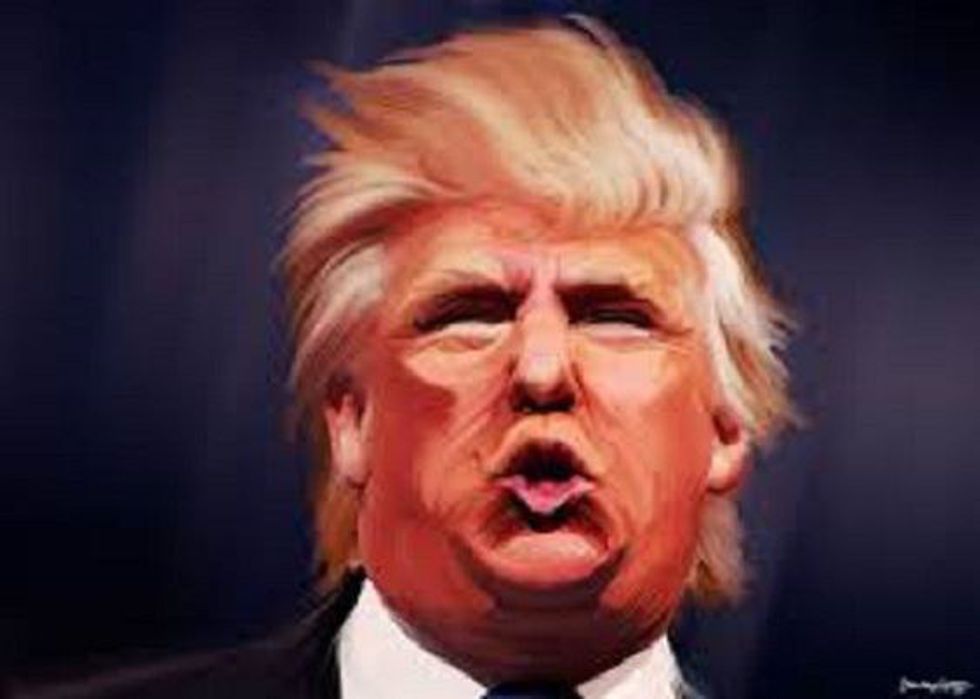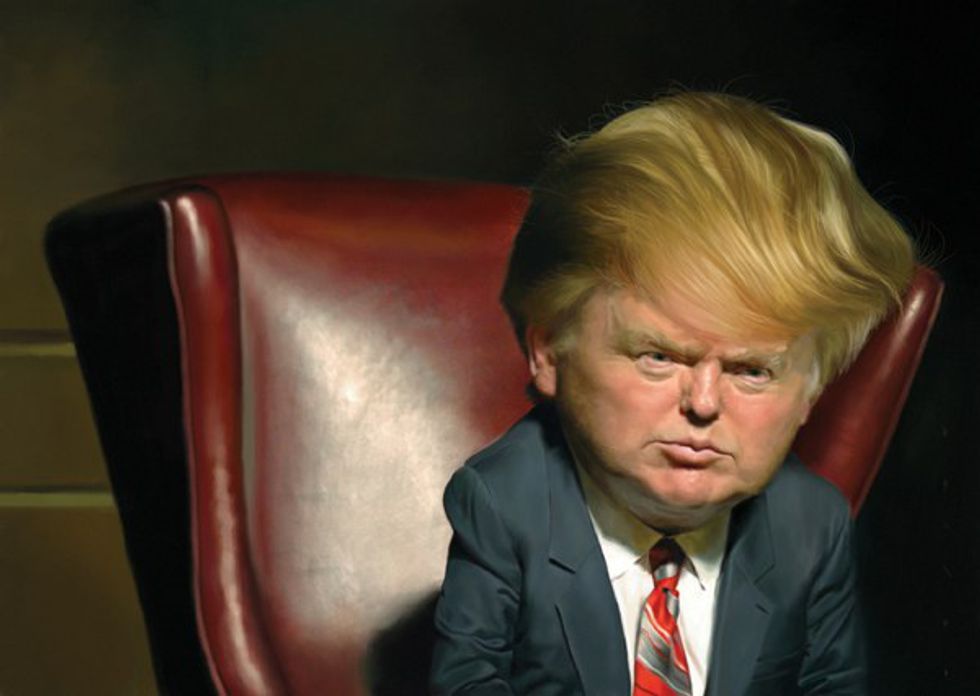A day after Mr. Trump’s now notorious solo press conference, The New Yorker’s Ryan Lizza floated an idea gleaned from a senior White House official, that without an enemy in his sightlines, Donald Trump is virtually at sea. It was Steve Bannon who suggested “the media” as a target, simple for Bannon, the official grumbled, “because he never talks to the media”, and minutes after the hour-long presser ended, the administration seemed to solidify this tactic by rolling out the “Mainstream Media Accountability Survey.” The survey is a masterclass in leading questions (“On which issues do the mainstream media do the worst job of representing Republicans?”), and some of its sentence constructions are gnarled beyond comprehension by double negatives (“Do you believe that contrary to what the media says, raising taxes does not create jobs?”). If anything, the survey resembles the kind of impossible questioning one might find on a literacy test for voters in the Jim Crow south.
Enemies, if you need them, are important to define early, and with the administration coming up on its one-month anniversary, Trump decided to ramp up his rhetoric with a tweet that was deleted (gasp!) and then shortly reinstated (of course) that called the media “the enemy of the American people.”
Trump updates deleted tweet to include more media outlets he hates: pic.twitter.com/uZu474LOwI
— Olivia Nuzzi (@Olivianuzzi) February 17, 2017
Garry Kasparov soon noted that the president was pretty much right on time, if his goal was to beat Vladimir Lenin to the punch.
A century ago, it took Vladimir Lenin one month after taking power to coin the term "vrag naroda", "enemy of the people", on 28 Nov, 1917.
— Garry Kasparov (@Kasparov63) February 18, 2017
In his 2013 book "The White Rose of Stalingrad", about the Soviet air-ace Lidiya Vladimirovna Litvyak, author Bille Yenne describes the uses and reuses of the political phrase “enemy of the people” which was first used by the Roman Senate in the ousting of Nero, and later has been trotted out by any leader looking for a few good enemies:
"Stalin and his fellow Bolsheviks had always been cognizant of the fact that their Revolution was as transformative to the course of world history as was the French Revolution nearly 130 years earlier. Just as French Revolutionaries used the term ennemi du peuple to describe counterrevolutionaries as harshly as possible, so did the Bolsheviks. To be an enemy of the people, a vrag naroda, was an indefensible crime.
Said Maximilien Robespierre in December 1793, “The revolutionary government owes to the good citizen all the protection of the nation, it owes nothing to the Enemies of the People but Death.”
Said Vladimir Lenin in November 1917, “all leaders of the Constitutional Democratic Party, a party filled with enemies of the people, are hereby to be considered outlaws, and are to be arrested immediately and brought before the revolutionary court.”
On is also reminded that in 1934, Maxim Gorky had remarked that the use of slave labor in the construction of the “Canal Named Stalin” had been an exercise in reeducating “enemies of the people into their friends.”























